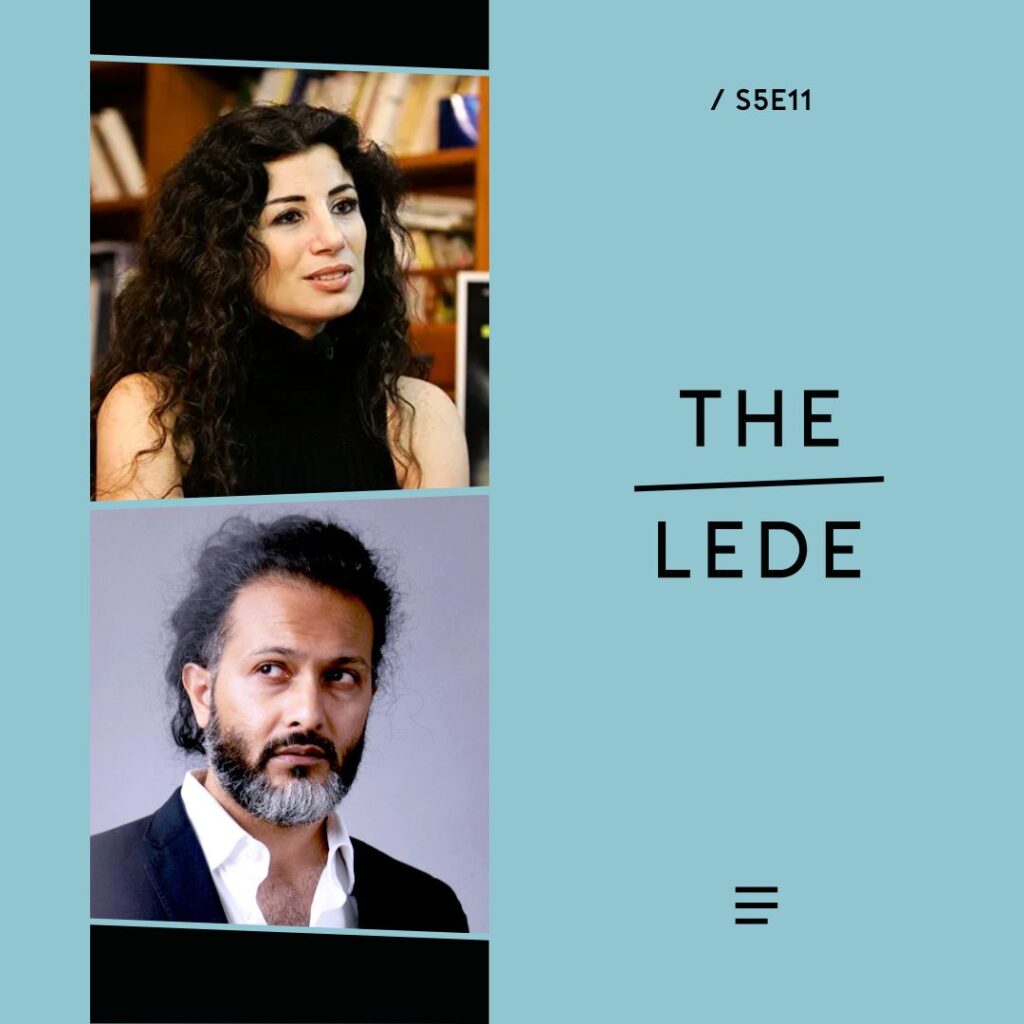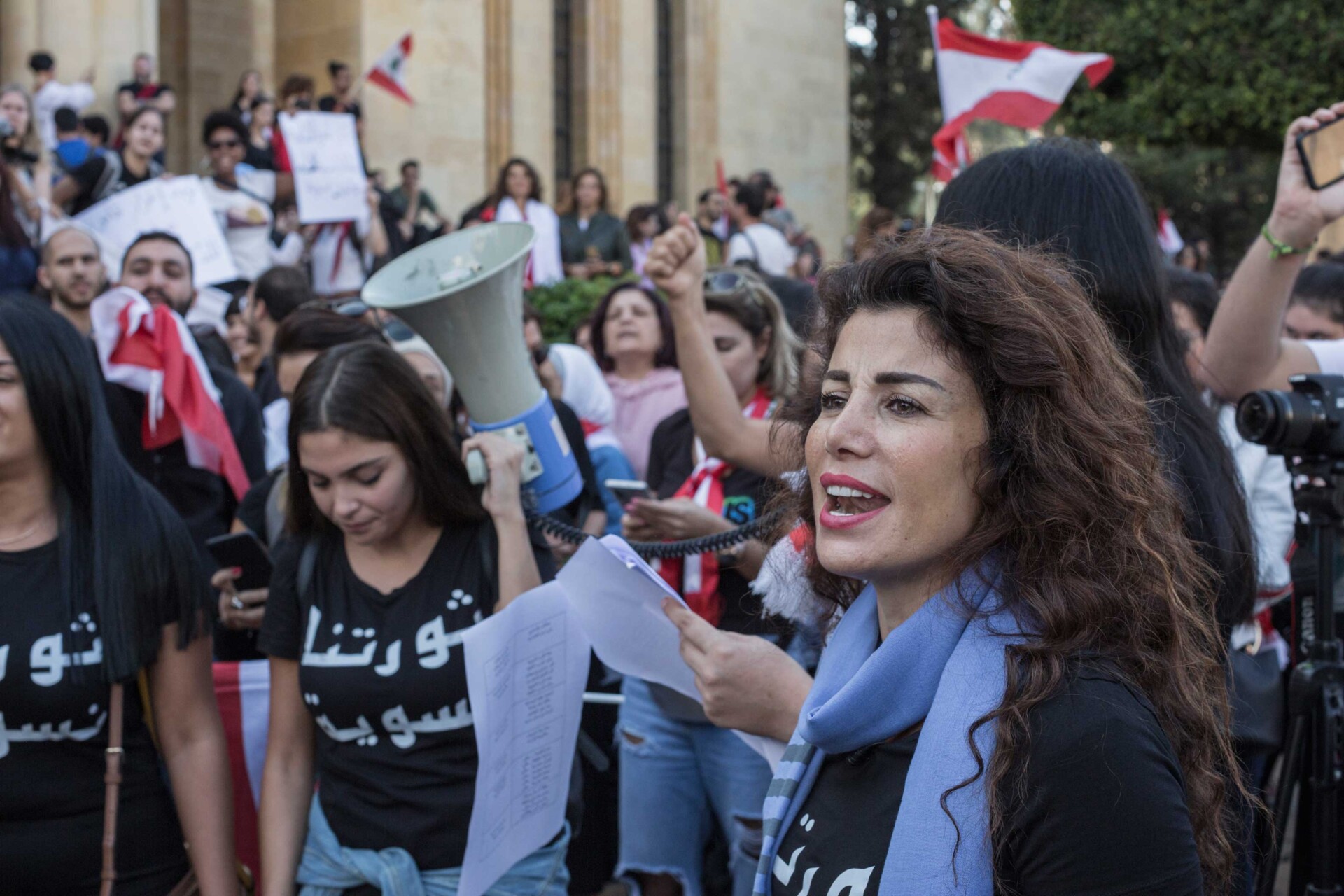Hosted by Faisal Al Yafai
Featuring Joumana Haddad
Produced by Finbar Anderson
Listen to and follow The Lede
Apple Podcasts | Spotify | Podbean
For Joumana Haddad, politics doesn’t just take place in grand government buildings in the glare of the media. “It’s in the way we live our daily lives,” she tells New Lines’ Faisal Al Yafai. “Any change that we manage to produce in this small circle of ours is a political act.”
Haddad has lived out a political life in a plethora of ways, whether through her writing, her activism or even the brief campaign in which she ran for parliament in her native Lebanon.
The idea of not living such a life is anathema to Haddad. “When you were asking me about the cost of being in politics, I was thinking that it’s actually the cost of simply being myself. This is how I am, whether in my daily life or in my public life, and there’s never been a separation between the two,” she explains.

“War changes you. It doesn’t necessarily make you a tougher person or a better person or a worse person, but it is a training on the art of dying.”
This idea feeds into her reluctance to leave Lebanon, despite an often chaotic political climate manifested in the civil war, the political violence that followed and the current war in Gaza that has turned southern Lebanon into a war zone. “I’m convinced that even though I’m fiercely criticized or fought, or unaccepted, there are people in this part of the world who need people like me, and we are not a few. There are lots of us who are deciding to stay because change really does happen from within.”
Haddad and Al Yafai discuss a previous episode of The Lede in which Lebanese journalist Dalal Mawad aired her frustration with the spread of the idea of Lebanese “resilience.”
“I don’t reject it, because it’s somehow true, but I resent it,” says Haddad. “Is it the fact that we’ve been trained through decades of hardship to quickly get back on our feet and recover after each blow? I’m convinced it’s much more than that. … We are trying to survive and seize the moment, because who knows what’s going to happen tomorrow. We forget to live, we forget to fight.”
Growing up in the 1970s and in the context of the Lebanese Civil War played a huge part in her current character, says Haddad. “War changes you. It doesn’t necessarily make you a tougher person or a better person or a worse person, but it is a training on the art of dying. I’ve always thought about that ever since I can remember. And it’s not easy to live while thinking you can die any minute.”
Haddad and Al Yafai address some of the more controversial topics that the writer has tackled over the years, such as her opinion that wearing the Muslim veil should be banned. “There’s no such thing as accepting the burqa in the name of respect for people’s beliefs, because the burqa is in itself an imposition. You cannot respect an imposition and say at the same time that you are respecting people’s freedom,” says Haddad.


